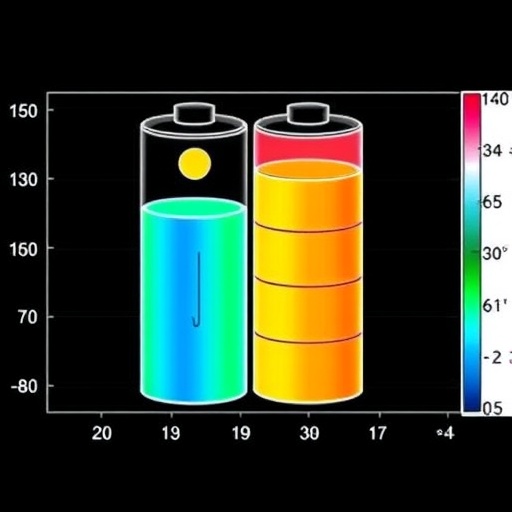Lithium-ion batteries have become a cornerstone of modern technology, powering a broad spectrum of devices ranging from smartphones to electric vehicles. As industries increasingly rely on these power sources, the need for accurate and reliable state of health (SoH) estimation has emerged as a critical issue. Recent advancements in the field have brought attention to innovative methodologies for estimating the SoH, crucial for ensuring the reliability and longevity of lithium-ion batteries. One such approach is outlined in the groundbreaking research by Zhang, Wu, and Ye, which introduces a novel estimation technique based on KOA-QLSTM.
Understanding the essence of the SoH is crucial for any discussion surrounding lithium-ion batteries. The SoH is a measure of the current condition of a battery compared to its ideal state when new. This metric plays an essential role in assessing battery performance, predicting lifespan, and determining when a battery should be replaced. Accurate SoH estimation enhances the safety and efficiency of battery management systems, ultimately improving user experience and increasing device longevity.
In the study conducted by Zhang and colleagues, the authors delve into the limitations of traditional SoH estimation methods, which often rely on simplistic algorithms that fail to adapt to the complexities of real-world battery behavior. In contrast, their proposed KOA-QLSTM method leverages a combination of Kernel Orthogonalization Algorithm (KOA) and Long Short-Term Memory (LSTM) networks, drawing upon the strengths of both to achieve higher accuracy in SoH predictions.
The KOA component focuses on optimizing the dataset by removing noise and irrelevant information, thereby enhancing the quality of the input data fed into the LSTM model. This preprocessing stage is critical because the performance of machine learning algorithms is heavily dependent on the quality of the data. By applying KOA, the authors ensure that the LSTM model can effectively learn and generalize from a cleaner dataset, ultimately elevating the accuracy of SoH estimation.
LSTM networks, on the other hand, are a special type of recurrent neural network capable of learning long-term dependencies, making them particularly well-suited for time-series applications such as battery monitoring. Batteries exhibit complex behavior over time, influenced by various factors such as temperature, charge cycles, and usage patterns. The LSTM architecture is adept at capturing these temporal dynamics, allowing for a more nuanced understanding of battery health.
The combination of KOA and LSTM in the KOA-QLSTM model ensures robust performance across different battery chemistries and usage conditions. In their experiments, Zhang et al. demonstrated that the model significantly outperforms traditional methods in predicting SoH, showcasing its potential as a game-changer in battery management solutions. As electric vehicles and renewable energy systems become more prevalent, such advancements in battery technology will be crucial for sustainable energy solutions.
Moreover, the researchers highlight that the KOA-QLSTM model is not just limited to lithium-ion batteries; its principles can be extended to other battery types, enabling a wide range of applications. This adaptability is vital in a landscape where different battery chemistries are being developed for specific applications, including solid-state batteries and sodium-ion batteries.
The implications of this research extend beyond theoretical advancements. With the accurate SoH estimation provided by the KOA-QLSTM model, industries can engage in proactive maintenance strategies, reducing the risk of battery failures that can lead to hazardous situations. Additionally, this technology can optimize charging cycles, extending the lifespan of batteries and supporting the sustainable use of resources.
As the world increasingly relies on battery storage systems to complement renewable energy sources, such methodologies offer a path towards sustainable energy management. The ability to accurately determine battery SoH is not merely an academic exercise; it is an urgent requirement in our transition to greener technologies. Organizations focused on combating climate change and promoting renewable energy solutions will find the implications of this research particularly valuable.
The significance of research like that of Zhang, Wu, and Ye cannot be understated as we stand on the precipice of energy transformation. By embracing advanced methodologies such as the KOA-QLSTM model, we are paving the way for the future of battery technology, which will undoubtedly shape our interactions with energy storage and consumption. Consequently, it is imperative for stakeholders across various sectors to invest in and adapt such promising technologies, promoting safer and more effective use of lithium-ion batteries.
As we look toward the future, it is clear that innovation in battery health monitoring is not just a necessity; it is an opportunity for revolutionary advancements across a multitude of industries. From automotive to portable electronics, the benefits of accurate SoH estimation resonate widely, hinting at a more efficient and sustainable future rooted in smarter battery management practices.
This progressive research encapsulates the dynamic interplay between innovation and practical application, embodying the spirit of advancement that defines the scientific community. With continued investment and focus on battery health assessment technologies, we can anticipate a future where energy systems are safer, more reliable, and capable of meeting the demands of a rapidly evolving technological landscape.
In conclusion, as we harness the power of research to address critical challenges in battery management, we find ourselves propelled toward a future that promises more resilient, efficient, and sustainable energy solutions. The journey of analyzing and enhancing lithium-ion battery health is ongoing, and this landmark study serves as a vital stepping stone in a continued quest for innovation and excellence in energy storage.
Subject of Research: Estimation of the state of health (SoH) for lithium-ion batteries using KOA-QLSTM methodology.
Article Title: State of health estimation for lithium-ion batteries based on KOA-QLSTM.
Article References:
Zhang, Y., Wu, H. & Ye, C. State of health estimation for lithium-ion batteries based on KOA-QLSTM.
Ionics (2025). https://doi.org/10.1007/s11581-025-06807-y
Image Credits: AI Generated
DOI: https://doi.org/10.1007/s11581-025-06807-y
Keywords: lithium-ion batteries, state of health estimation, KOA-QLSTM, machine learning, renewable energy.




